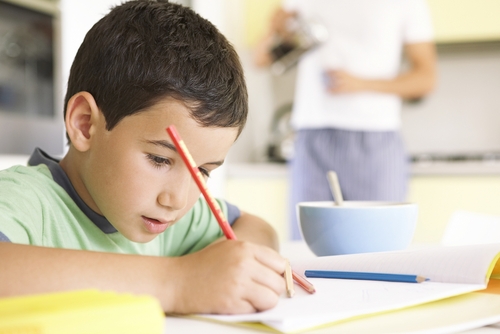
Photo: Shutterstock
Kids who think that they are spending too much time on homework now have an ally: according to researchers at the University of Oviedo in Spain, there’s an ideal amount of homework kids can handle. They found that about an hour’s worth of math and science homework was optimal for most students. Those who spent that amount of time scored the highest in the standardized tests that were conducted later. Spending more time does little to help kids learn and may even lower their performance.
The Spanish team asked 7,725 students from public, state-funded, and private schools how often they did homework. These students were also asked about the amount of effort they spent on different subjects and how often they needed help from others. They were then given standardized math and science tests to be evaluated.
The researchers found that the students got the most benefit when teachers regularly assigned math and science homework that was expected to take 50-60 minutes to complete. Students who tried to do their homework independently did better on math tests than students who sought help frequently.
The research was published in the American Psychological Association’s Journal of Educational Psychology and reported Vox.com.
According to Javier Suarez-Alvarez, the co-lead researcher on the study, regular homework assignments and minimal parental involvement accounted for the highest test scores. The most effective students had strong independent work habits and were able to engage in ‘self-regulated learning’.
The study did find that there was a small additional benefit to spending more than 60 minutes, but the benefit may not be worth the additional two hours per week that would be spent. Hitting the books excessively, however, seemed to have a negative impact on the students’ performance. After 100 minutes of homework, the children’s test scores became lower.
However, there are some questions that the study may not be able to answer. For example, the students were tested for math and science but the results weren’t differentiated. Also, the children were only each tested once so while there could be a link between the amount of homework and performance in tests, it’s not an absolute given.
Suarez-Alvarez said the study results raise questions about how “academic intelligence, self-concept, and self-esteem influence performance, too. The conclusion is that when it comes to homework, how is more important than how much. Once individual effort and autonomous working is considered, the time spent becomes irrelevant.”
What do you think about this article? Leave a comment below. Please like FamiLife’s page on Facebook so that you get all our articles and others may find us.
